Key takeaways
There are 5 simple steps to follow if your dog runs away.
These include not chasing them, contacting their microchip company, starting a physical search, spreading the message, and starting a PetRadar search.
We also offer our expert insight into why dogs run away so you can prevent this from happening again in the future.
Quick Navigation
What to do when your dog runs away: 5 simple steps
1. Don't chase them
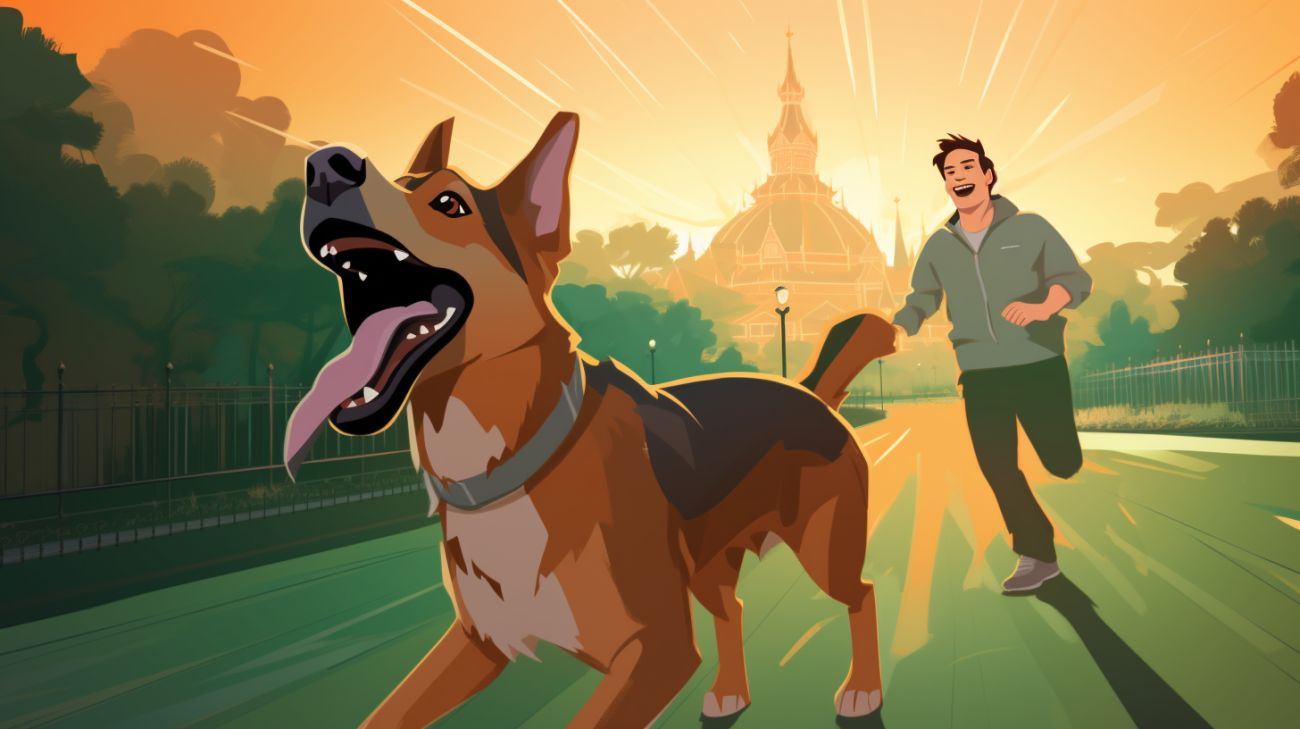
2. Contact the microchip company
By making sure your contact details are up to date, and the microchip company knows your dog is missing, you'll avoid some nasty scenarios.
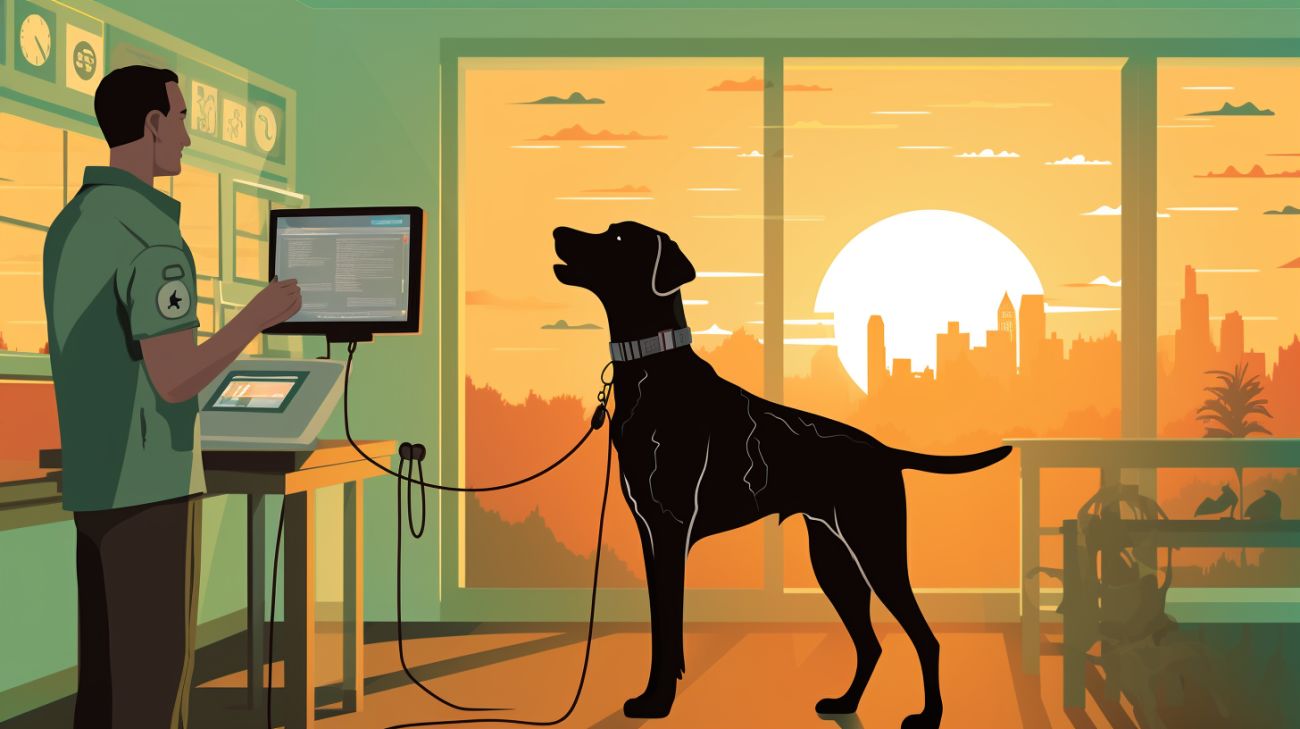
3. Start a physical search
Stay on the trail: Stay on the walk that they ran away on, but start retracing your steps back to the car. Your dog will be able to follow your trail using their sense of smell.
Nearby fields and farms: If your pup gets lost away from home, they may be frightened and disoriented. This means they'll be attracted to quiet places away from people, like fields and farms.
Local parks: Parks and places densely populated near the trail will attract a sociable pup.
Wooded areas: A scared dog may choose to stay in the wooded area of a trail because it offers lots of hiding places and a sense of security.
Outbuildings: Check sheds, garages, and bin stores around your and your neighbors's houses.
Gardens: If your dog wants an adventure, they'll likely try to find friends in your neighbors' backyards.
Under cars: Your dog may be frightened if they are lost and choose to hide from people and other animals under cars.
Local parks: Our furry friends have most likely memorized the route to their favorite places, and this will probably include the local park.
Town centers: A sociable dog will be attracted to the sounds and smells of people and shops, so be sure to check town centers.

4. Report them missing and spread the message
Local animal shelters
Local veterinary practices
Local dog warden
Public notice boards
Local shops (with permission)
Lamposts
Town halls
Posting through neighbors' letterboxes
Communal areas of apartment buildings
Use an easy to read font
Use a simple color palette
Use big, bold fonts
Include multiple images of your pup
Include a detailed description of your dog's physical traits
Include a detailed description of your dog's personality
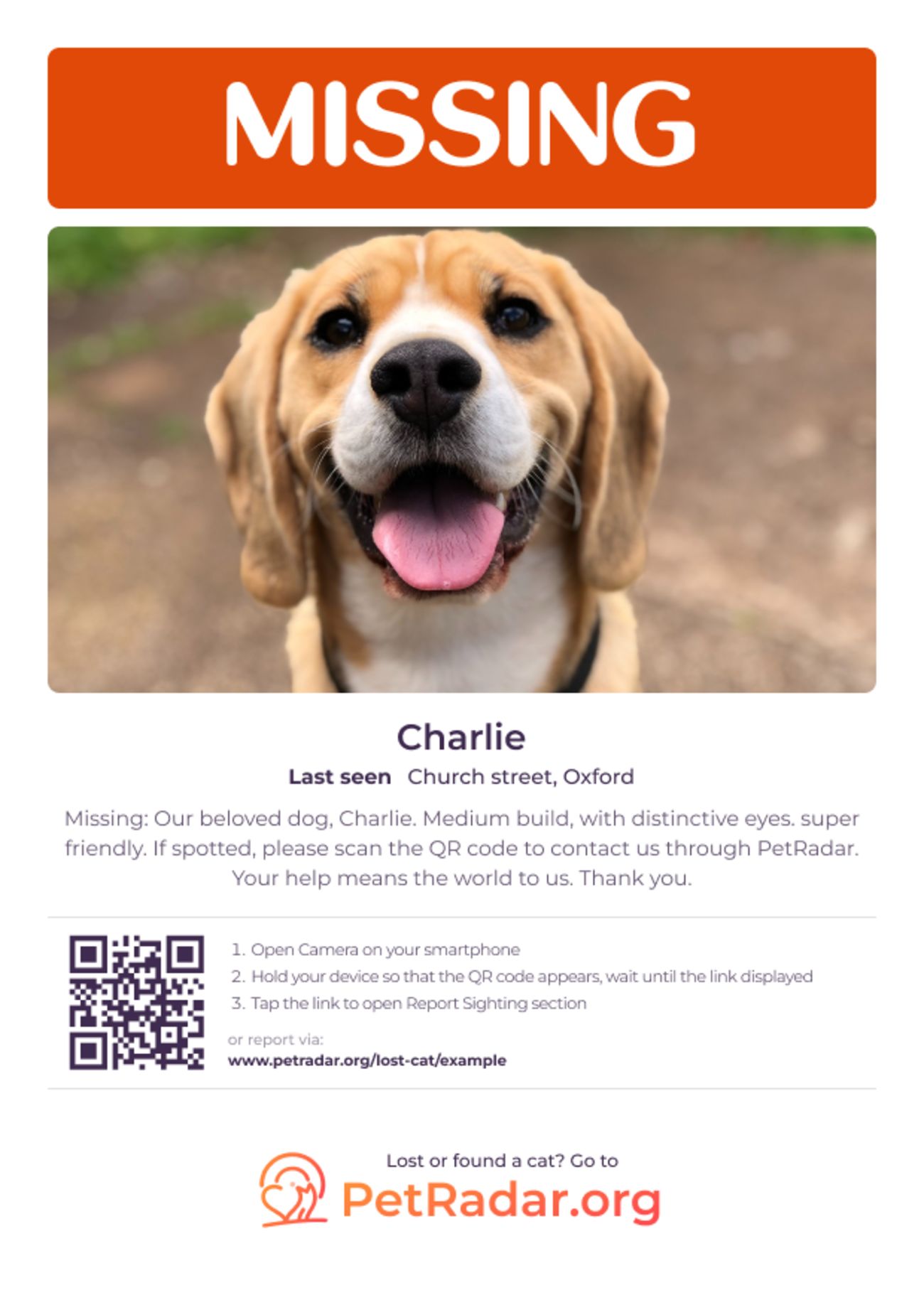
5. Start a PetRadar search
Send you a free printable missing dog poster to distribute around your neighborhood
List your pet on our website
Offer constant guidance and support
We've already reunited {{petsFoundBack}} lost pets with their owners, so you're in good hands!
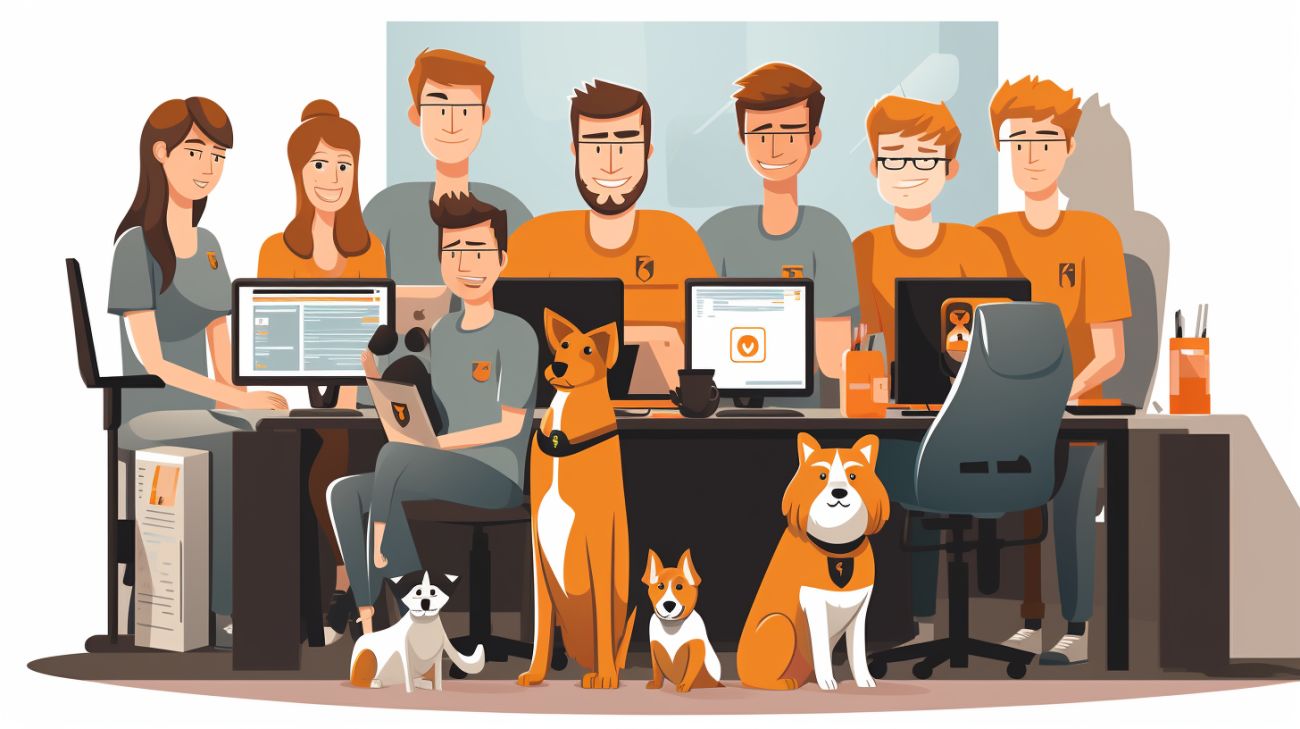
Why do dogs run away?
Instincts
Mating instinct: If your male dog picks up on the scent of a female dog in heat, they will run for miles to try and find them. This is almost unavoidable. However, if your dog is neutered, their urges will be less and easier to ignore.
Hunting instinct: We've seen how quickly our dogs move when a squirrel crosses their path. This is their hunting instinct in action. So, if they spot something in the distance or a small animal starts to run away from them, they'll feel the need to chase it.
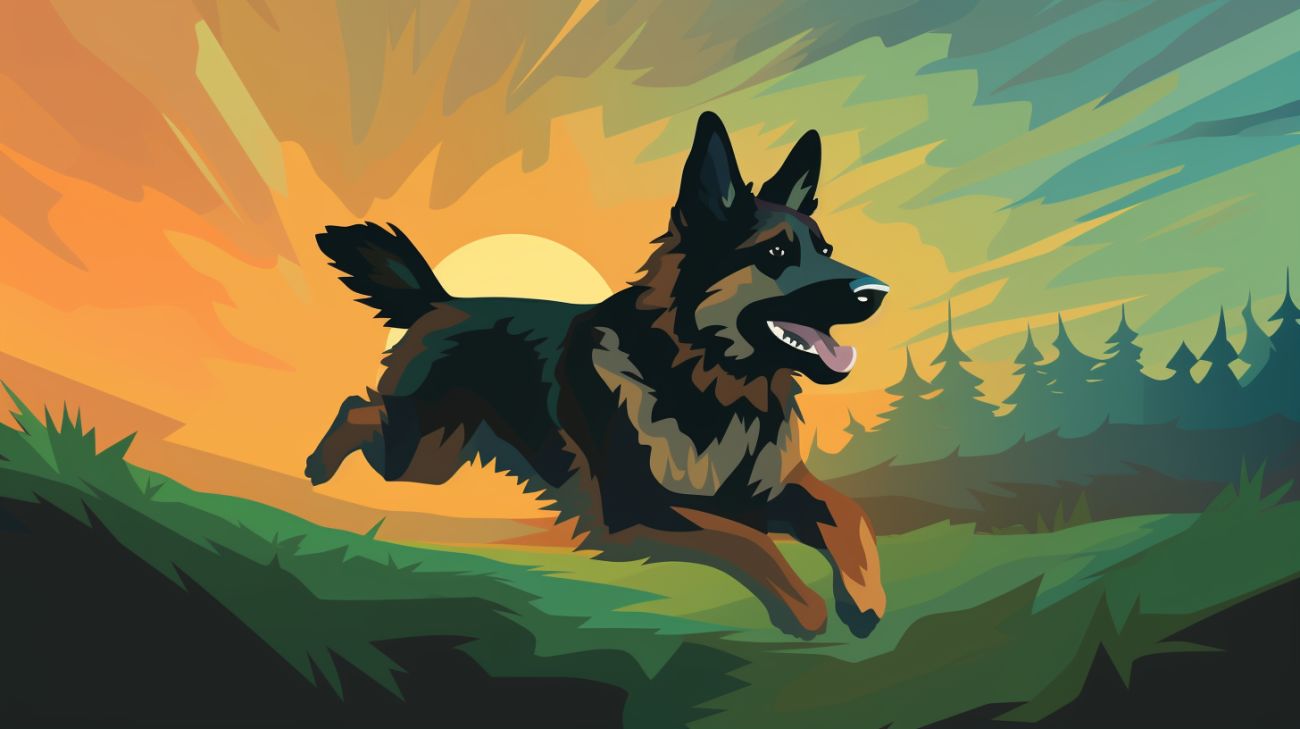
Curiosity

Fear and anxiety
Lack of exercise
Lack of stimulation
Lack of attention
Too little food
Lots of visitors in their territory
Loud noises
Sickness
Dogs can be sensitive creatures. They thrive on a stable routine, comforting behavior, and regular food.

FAQs
Do dogs come back if they run away?
Yes, dogs can come back if they run away. Because of their excellent sense of smell and powerful hearing, dogs have impressive homing abilities, which means they can find their way home after running away.
How can I make my dog stop running away?
To stop your dog from running away, you need to change their routine. They may be running because they aren't happy. This can stem from not getting enough attention, stimulation, exercise, or food. They may also not be comfortable in their environment. Make sure you keep a calm house and try walking them for a longer time every day.
Should I chase my dog if they run away?
No, you should never chase your dog if they run away. Lost animals are likely to be in 'fight or flight' mode, meaning if you chase them, they will become more frightened. By chasing your pup, you risk your dog running away further.
How can I attract my dog back home?
To attract your dog back home, you need to tap into their sense of smell. Leave food, treats, familiar-smelling blankets and clothes, and toys outside. These will smell of their territory, helping them locate home again.
Why did my dog just run away?
If your dog runs away, it can be because of many reasons. These include being curious and following new smells, instincts like hunting and mating, fear, lack of stimulation, and lack of food.
How long can a dog survive after running away?
A lost dog can survive for a while after running away. However, it depends on the breed. Larger dogs like huskies and German shepherds are adaptable and can withstand cold temperatures, meaning they can survive for longer. Other dog breeds, like Yorkshire terriers and other small dogs, may struggle.
How common is it for dogs to run away?
15% of owners will experience their dog running away and getting lost (source). This means it's not very common for dogs to run away.
Why do some dogs not come back?
Some dogs may not come back after running away because they become lost. If they are disoriented and in a new environment, they may not be able to find their way back. They may also get handed in to animal shelters, stolen, or sadly may have passed away.



